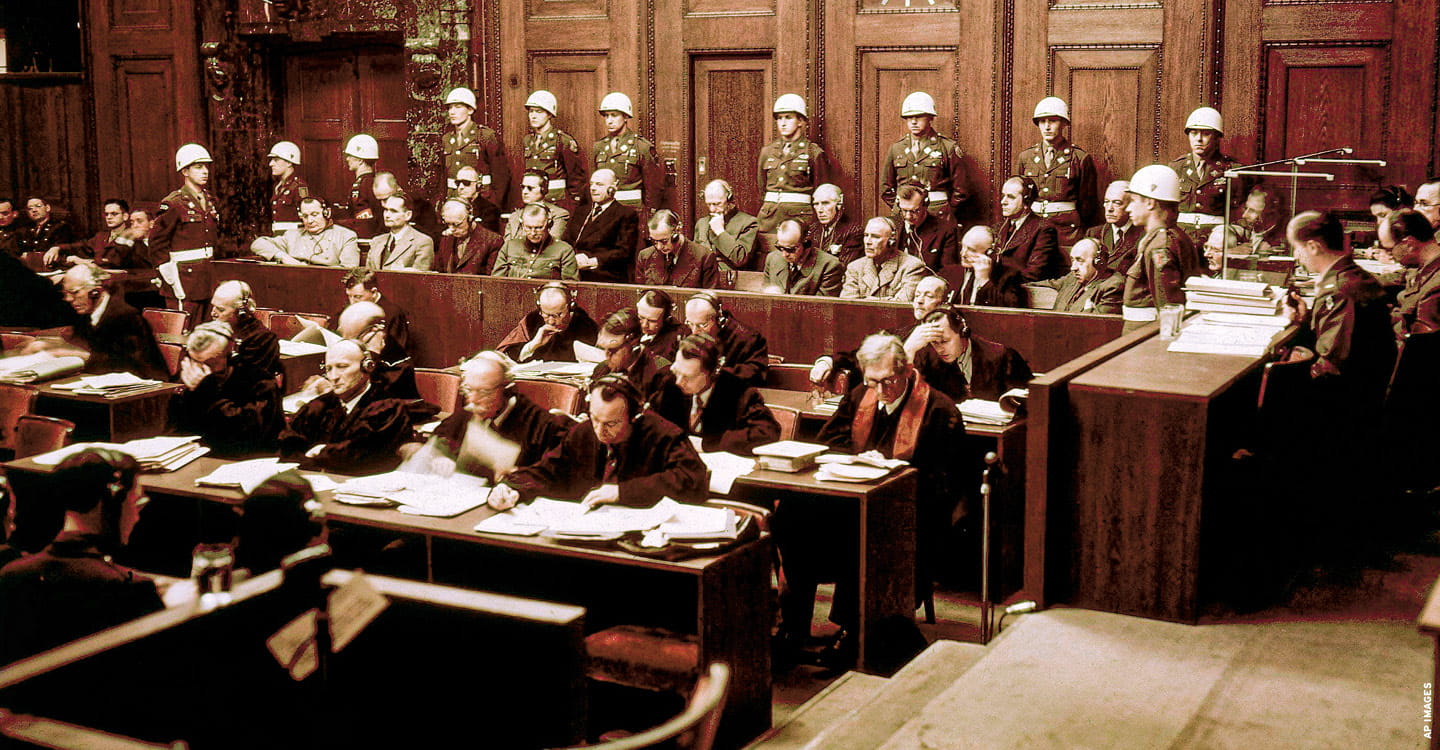The press called it “the trial of the century,” even “the greatest trial in history,” and it certainly was monumental.
The 22 men sitting in the prisoners’ dock were not run-of-the-mill criminals but the surviving leaders of Nazi Germany, which in 1939 had launched history’s most devastating war and gone on to systematically exterminate 6 million Jews and millions of others whom the Nazis considered “undesirables,” including Roma, gay people, and people with disabilities.
This was the historic war crimes trial held before four judges of an International Military Tribunal in Nuremberg, Germany, and this fall marks the 75th anniversary of that watershed event. The Nuremberg Trials—and the dozen follow-up legal proceedings against high-ranking German officials, doctors, judges, and business leaders—forced the architects of a genocidal war to undergo a fairly traditional judicial process. But some charges against them—“crimes against peace” and “crimes against humanity”—had never in history been brought before a court of law.
That latter charge—which specified such acts as extermination of a racial group, deportations, and enslavement—established a precedent for trying war criminals. It would be imitated decades later, after other instances of genocide—the killing of people with the intent to destroy, in whole or in part, a national, ethnic, racial, or religious group.
“Nuremberg defined the crime of genocide—that those who commit mass murder will be brought to justice,” says Holocaust scholar Michael Berenbaum. “And we have heeded that ever since.”
The press called it “the trial of the century.” Some even referred to it as “the greatest trial in history.” And it certainly was a significant moment.
The 22 men sitting in the prisoners’ dock were not common criminals. They were the surviving leaders of Nazi Germany. In 1939, their regime had launched history’s most devastating war. The Nazis had systematically murdered 6 million Jews. They had also killed millions of others whom they considered “undesirables.” That included Roma, gay people, and people with disabilities.
This was a historic war crimes trial. It was held before four judges of an International Military Tribunal in Nuremberg, Germany. This fall marks the 75th anniversary of that landmark event. The Nuremberg Trials were held to prosecute the architects of a genocidal war. (A dozen follow-up legal proceedings prosecuted high-ranking German officials, doctors, judges, and business leaders.) It was the first time in history that the charges of “crimes against peace” and “crimes against humanity“ had been ever brought before a court of law.
That latter charge referred to acts like the extermination of a racial group, deportations, and enslavement. It established a model for trying war criminals. It would be imitated decades later, after other instances of genocide. Genocide is the killing of people with the intent to destroy, in whole or in part, a national, ethnic, racial, or religious group.
“Nuremberg defined the crime of genocide—that those who commit mass murder will be brought to justice,” says Holocaust scholar Michael Berenbaum. “And we have heeded that ever since.”

